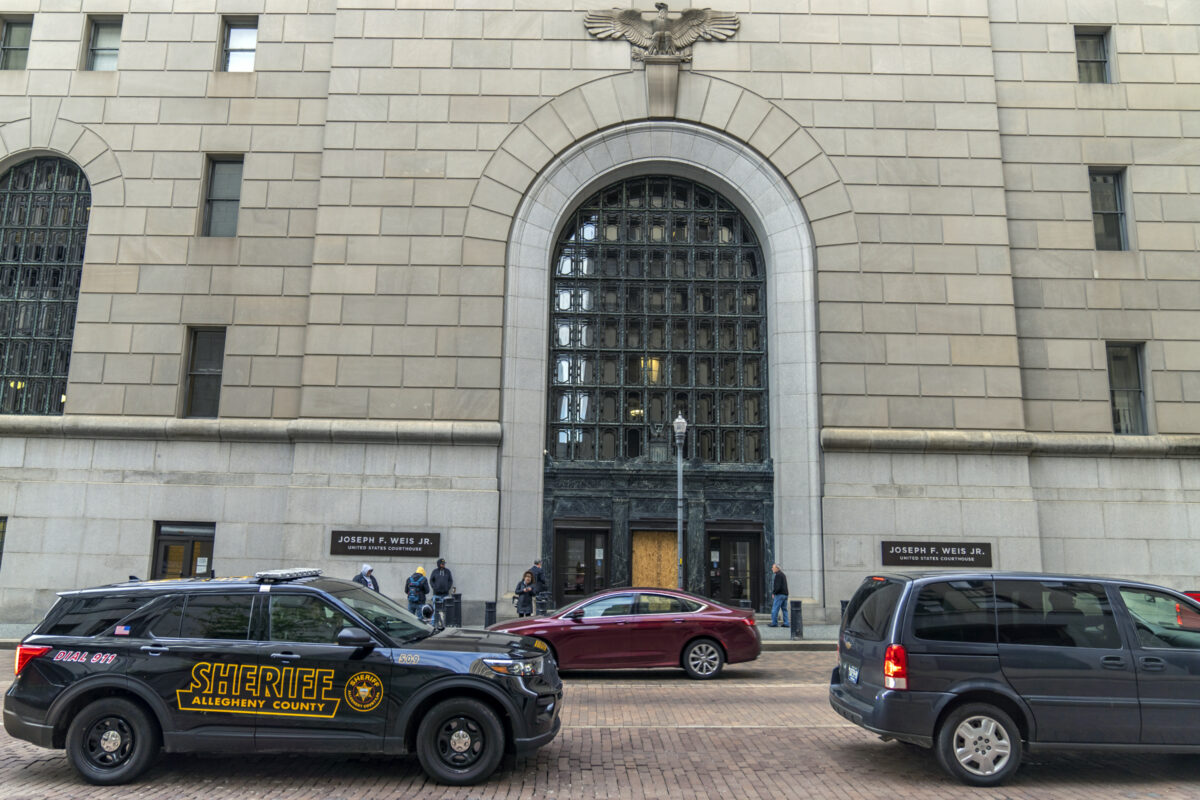The defense called on a medical expert who claimed that the Pittsburgh synagogue shooter experienced delusions and signs of schizophrenia on Day 5 of the trial’s second phase.
Only one witness, forensic psychologist Richard Rogers, gave testimony Friday. He testified Thursday, when he spoke about Robert Bowers’ goals and mental health, mentioning that the defendant had “manifested symptoms of schizophrenia” since at least April 2018.
The defense questioned Rogers Friday about the criteria for persecutory and nihilistic delusions — a symptom of schizophrenia. Rogers also testified that the defendant’s awareness of his delusions “was pretty much lacking,” also a sign of schizophrenia.
Rogers said that the defendant believed that he was the target of a conspiracy leveled by Jewish people and that the world would soon come to an end. He mentioned that over the course of his evaluation, the shooter espoused white nationalist theories such as the “great replacement theory,” which claims that white people are being replaced by nonwhite immigrants; referenced the Bible; and was illogical in attempting to justify his beliefs and subsequent actions.
One sign of this irrationality, according to Rogers, was the defendant’s repetition of “a Jew is a Jew is a Jew.” He told Rogers that he considered all Jewish worshippers, including a woman who looked “terrified,” to be “hostile invaders.”
“I could not see the rationality of that,” Rogers said.
On Oct. 27, 2018, Bowers shot and killed 11 worshippers in the Tree of Life building, leaving six other people injured. Earlier this month, he was found guilty of all federal charges he faced, at the conclusion of the first of three trial phases.
Now, the trial has moved on to the second phase, which will determine whether the defendant is eligible for the death penalty. The defense is aiming to prove that his mental state rendered him incapable of sufficient intent to kill — citing signs of epilepsy and schizophrenia.
If even one juror decides that the shooter lacks the intent to qualify for capital punishment, the trial will conclude at the end of this phase. If the jury is unanimous in determining that he is eligible for the death penalty, a final phase will decide his sentence.
Rogers left the stand, and attorneys spent the remainder of the day disputing the planned testimony for the next witness. Originally, the defense planned to question neuropsychologist Erin Bigler about analysis performed by a different government expert. After the prosecution objected, the defense agreed to reconfigure the PowerPoint before the trial reconvenes Monday.
Related story: Resources are available to ease trauma during synagogue shooting trial.
This story is part of ongoing coverage of the Pittsburgh synagogue shooting trial by the Pittsburgh Jewish Chronicle and the Pittsburgh Union Progress in a collaboration supported by funding from the Pittsburgh Media Partnership.
Delaney, a rising senior at the University of Pennsylvania, is a Union Progress summer intern. Reach her at dparks@unionprogress.com.



